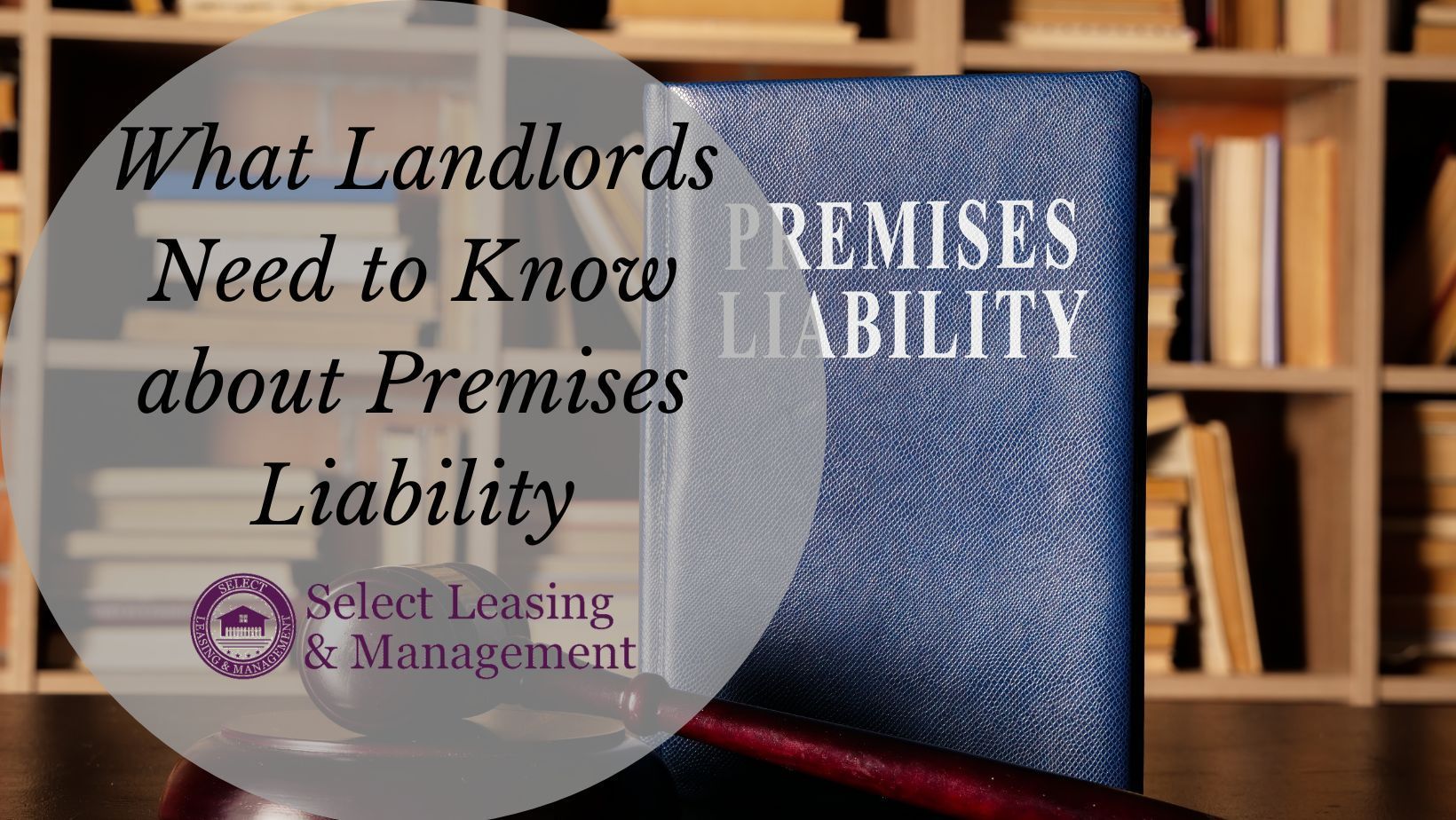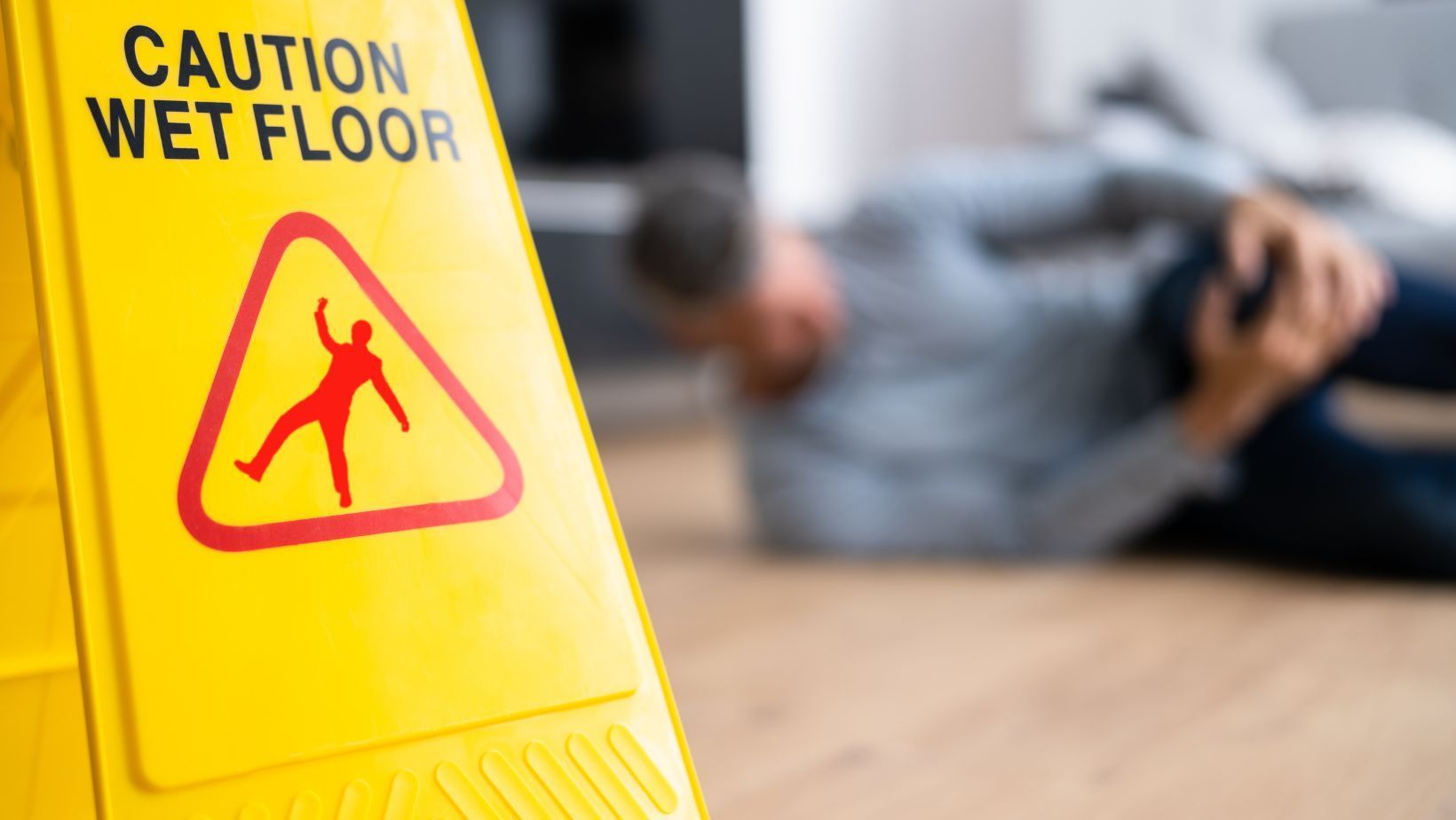What All Landlords Need to Know About Premises Liability

Landlords and property management companies owe their tenants a safe place to live. If someone gets hurt on the property, it could result in lawsuits and financial losses due to the legal concept of premises liability.
Premises liability holds building owners and property managers responsible when a tenant or guest suffers a personal injury on the premises. The injured person, however, needs to prove that the landlord or manager caused the incident by being negligent or reckless.
It is important to make sure that whoever is in charge of taking care of your rental property—whether you do it yourself or hire out to a third party—that it is being done with the renters’ safety and security in mind. Knowing what premises liability is all about will help avoid dangerous conditions where someone can get hurt, as well as protect your financial investment as an owner.
Premises Liability Claims
The most common type of premises liability case brought by tenants are the result of injuries from tripping, slipping, and falling. What happens inside an apartment is usually not the landlord’s responsibility, but anything in common areas can be. Common areas include the lobby, interior or exterior hallways and stairways, laundry or workout room, pool, sidewalks, or parking lot. A broken step or banister, buckled flooring, uneven sidewalk, or ice and snow on a porch or walkway might cause someone to fall and hurt themselves.
Hidden or latent defects in a building might also be the basis of a premises liability claim. These are specific dangers that a landlord or a property manager might know about, but do not disclose to a tenant, and that the tenant would not necessarily notice day-to-day. Examples could be faulty wiring or the presence of a toxic substance.
Property management comes with a duty to repair things that break or can cause harm. Neglecting repairs can open up a landlord or a hired manager to premises liability claims. Things must be fixed competently and within a reasonable amount of time. That means making sure that hired workers have the appropriate credentials or licenses and that all repairs meet legal requirements and local codes.
One of the biggest concerns of tenants is their personal safety. Well-lit, secure entryways, working locks, and in some cases security cameras and intercoms are a must. If someone gets hurt as the victim of a crime on the property and can prove that negligent property management allowed it to happen, they could have a case of premises liability against the manager or the owner.
When Owners and Managers Are Liable—And When They Aren’t

Failing to fix a problem is not the only requirement for an owner or property management company to be deemed responsible for an injury. First, they must have had knowledge of the issue. Then, knowing about it, they must have either ignored or delayed doing what was necessary to fix it.
Repairs must happen in a timely manner. The amount of time that is considered reasonable is often a point of debate. A judge or jury might have to decide what is reasonable for a specific circumstance.
Let’s say that a tenant has informed the landlord that a cracked floor tile in the lobby is becoming a trip hazard. Several weeks go by and there is no attempt to fix it. If someone trips and falls, breaking their wrist, they may have a claim against the landlord.
Perhaps the landlord has made arrangements for someone to fix the tile, but it isn’t scheduled for several weeks. This does not necessarily protect them from a claim, because the hazardous condition was still present. If, however, they put up a caution sign or protective barrier around the spot, and the tenant ignored it and fell, the landlord would most likely not be considered negligent.
What’s in the Contract Makes a Difference
When the owner of rental property hires a property management company, who is liable if someone gets hurt? An injured tenant could try to sue both of them.
Building owners need to be sure they understand exactly who is responsible for what when they contract with a third party for property management. A good company will take the necessary steps to keep the building in good shape and ensure that tenants are safe. Details about how they will do that should be spelled out in their contract.
For example, a management company contract might promise that all repair requests will be addressed within a certain timeframe, say 24 hours, or offer a guarantee that all workmen will be vetted and bonded. If a premises liability claim is ever brought against one or both parties, the contract could shed light on who bears responsibility.
Safeguards Against Premises Liability Cases
In a perfect world, rental property managers would make every repair immediately and no one would ever get hurt. But accidents happen. And in some unfortunate circumstances, rental managers or owners neglect their property and their tenants.
To have a case, a tenant must prove that they sustained their injuries on the property and that it happened because the owner or manager failed to provide a safe environment.
The following tips can help landlords and managers prove that an incident was not their fault, or in some cases, might avoid the accident altogether.
- Have a written maintenance checklist. Check for necessary repairs on a routine schedule and fix them as soon as possible.
- Make reporting problems easy for tenants. Let them know who to contact and encourage them to let management know if they experience anything that could become a hazard.
- Keep a record of all maintenance requests and reported problems.
- Commit to a specific timeframe to address repairs.
- If repairs can not be completed right away, take steps to inform and warn tenants of the problem.
These steps might not stop an injury from occurring. However, they can go a long way in showing that the landlord took steps to keep their tenants safe. Not only is this simply the right thing to do, but it could also go far in defending against a premises liability case.
Premises Liability Insurance
A claim from a tenant will typically be settled out of court with an insurance company. As business owners, both landlords and property management companies should carry a general liability insurance policy. Both should also make sure they are covered in regards to premises liability issues.
There are a number of things to look for when searching for a property management company, and liability and insurance coverage is one that rental property owners should explore with potential candidates. Again, specific responsibilities can be written into their contract.
It is important to note that simply having premises liability insurance will not necessarily shield someone from having to pay damages. If negligence on the part of an owner or manager can be proven, an insurance company may refuse to pay. Landlords must safeguard their tenants and must make sure whoever they hire to manage their property does too.
Hire the Right Leasing and Management Company
The goal of every landlord should always be to take care of problems quickly, invest in improvements, and maintain good communication with the tenants. This is why it is essential to find a reputable company to handle leasing and management services.
Select Leasing & Management has been caring for rental properties throughout the St. Louis region for decades. Keeping your tenants safe and secure while protecting your investment is our top priority.
Cover image by designer491 by Canva.com
Share this post










